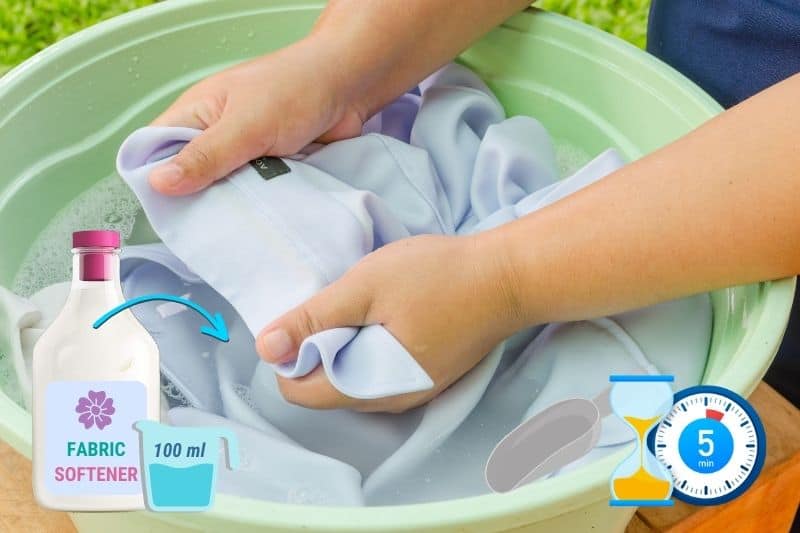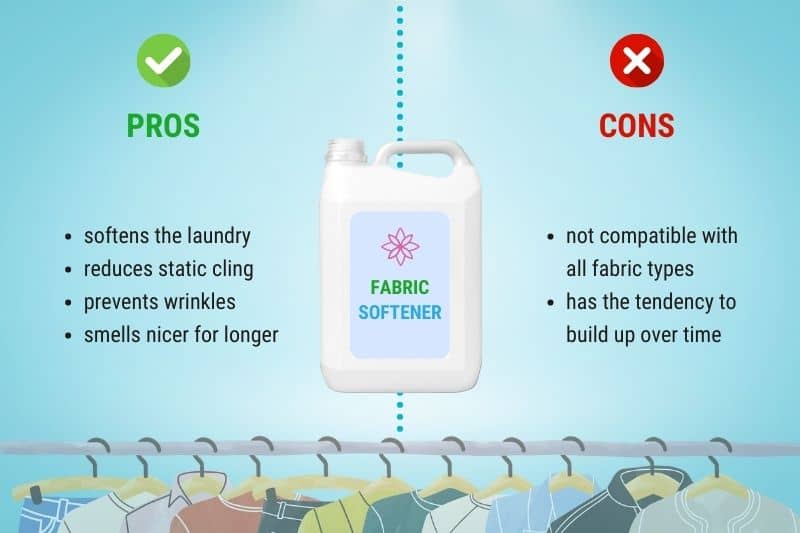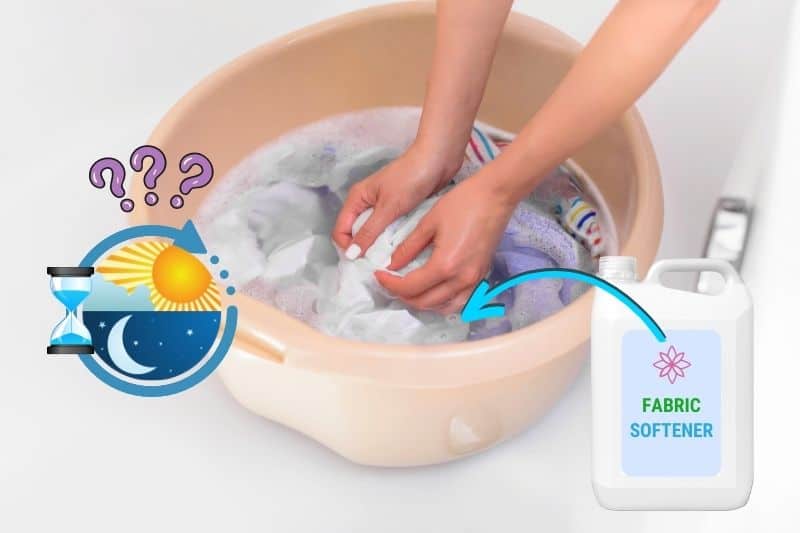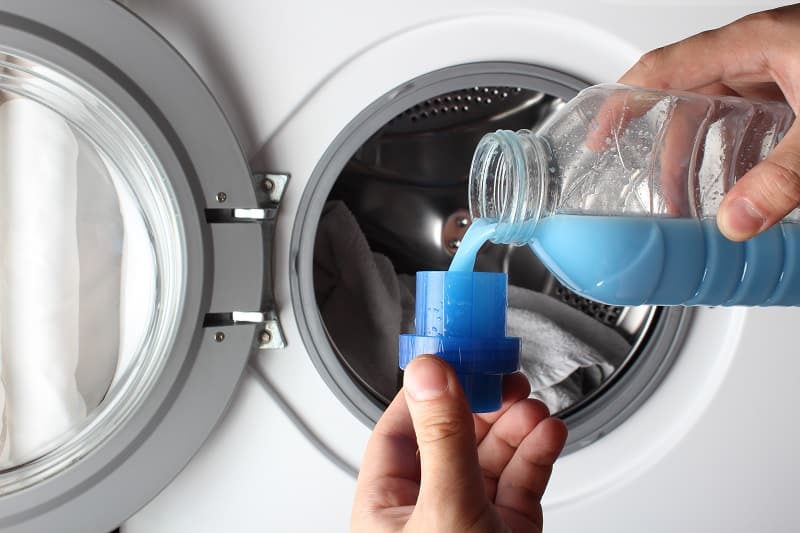Do you use fabric softener when doing your laundry?
Although it isn’t a necessity when it comes to cleaning your clothes, many people swear by using fabric softener to improve the feel of their clothing. Not only does it keep your laundry feeling nice and soft, but it also infuses it with a pleasant odour.
The most common way of using fabric softener is to add it to your wash during the rinse cycle. However, some people like to soak their clothes in fabric softener instead.
Yet this begs the question: How long can you soak laundry for? Can you soak clothes in fabric softener overnight? Read on to find out!
How Long Should You Soak Clothes in Fabric Softener?

The quickest and easiest way of incorporating fabric softener into your washing routine is by adding it to your machine during the rinse cycle. However, you can also soak your clothes in fabric softener once they come out of the wash.
This is just as beneficial as adding the fabric softener to your washing machine, but you can only soak laundry for a short amount of time, else you risk damaging your clothes.
For example, too much fabric softener can leave stains or uncomfortable residues on your clothes, cause colours to fade, and leave behind a bad smell.
Unfortunately, this means you shouldn’t soak your clothes in fabric softener overnight.
To soak your clothes in fabric softener without the risk of these issues, you need to do the following:
- Fill a large bucket with warm water
- Add 50 ml-100 ml of liquid fabric softener OR 1-2 fabric softener sheets to the water, using a large amount for larger loads of washing
- Stir the water until the fabric softener has dissolved
- Fully submerge your clothes in the fabric softener solution
- Leave your clothes to soak for up to 5 minutes
- Wring out any excess water from your clothes (do not rinse) and leave them to air dry
Once you have finished this process, remember to wash your hands. Fabric softener is one of the most common irritants, so we recommend you do this to prevent any discomfort.
What Are the Pros and Cons of Fabric Softener?

There are two distinct groups of people when it comes to fabric softener: those who swear by it and those who don’t see the need for it.
As with most things, there are both pros and cons to using fabric softener in your washing. These are laid out below so you can decide for yourself whether or not it is worth using.
Pros of fabric softener
The main benefit of using fabric softener is that it helps to soften your laundry so that it feels nicer to wear. It does this by reducing friction between the fabric fibres, which also helps to reduce static cling and prevent wrinkles.
If you opt for a scented fabric softener, you will also find that your laundry tends to smell nicer for longer. There are plenty of different fragrance options out there, so there is sure to be one that suits your taste.
Cons of fabric softener
There are two main issues when it comes to using fabric softener:
- It’s not compatible with all fabric types
- Fabric softener builds up over time
Although fabric softener is designed to improve the feel of your clothes, some materials just aren’t compatible with it and will become ruined if you use it when washing them. These include:
- Cashmere
- Wool
- Athletic wear
- Microfibre
- Feather-filled items
- Towels
- Water-repellent or flame-resistant items
Depending on the type of material, fabric softener could cause the item to become ineffective (e.g., towels lose their absorbency), flattened, or less breathable.
If you’re unsure whether fabric softener can be used on a specific fabric, you can check the clothing care label.
The other issue with fabric softener is that it will slowly build up on your clothes and in your washing machine.
This residual layer of softener on your clothes will prevent them from being properly cleaned while also locking in unwanted dirt and odours. Thankfully, this residue can be removed using the right method.
On top of this, the build-up of fabric softener in your machine will start to interfere with its effectiveness, further influencing the cleanliness of your clothes after washing.
Deposits of residue will also react with detergent in the machine, causing a build-up of ‘scrud’ and unsightly brown stains to appear on your clothes.
If you want to reap the benefits of fabric softener without dealing with these drawbacks, there are several alternatives you can use.

Hannah has a passion for cleaning. She worked her way around Australia by cleaning hostels in exchange for free accommodation and used her cleaning skills to bag a job as a chalet host for a luxury ski company in France.






